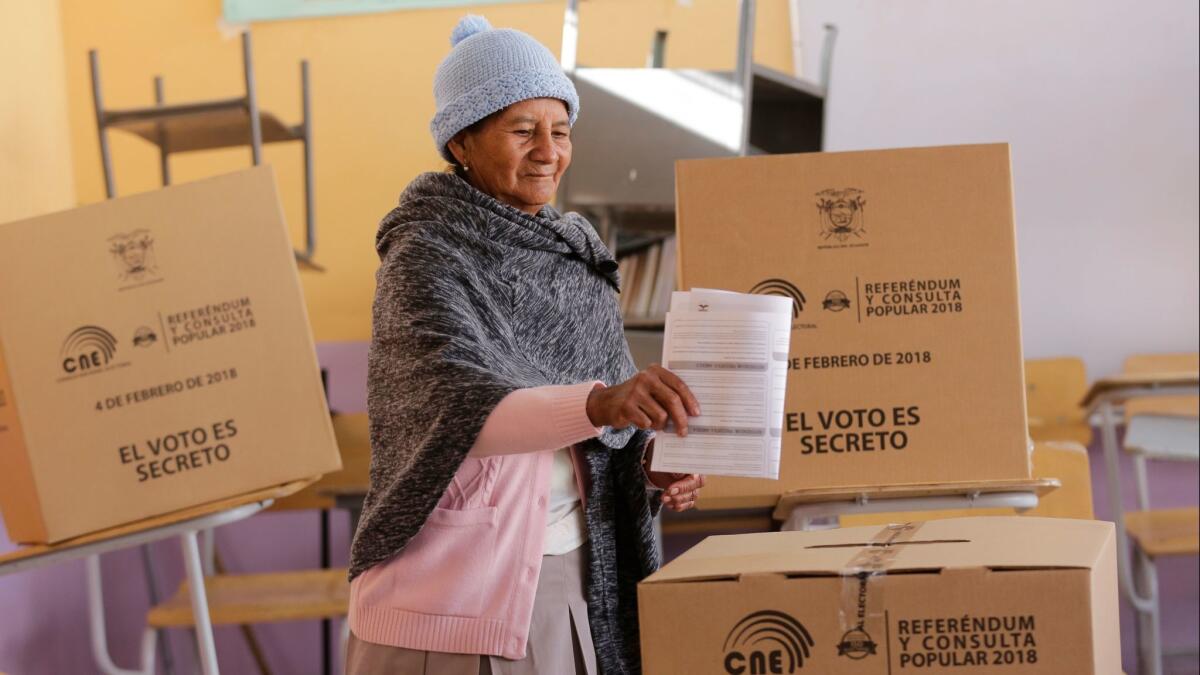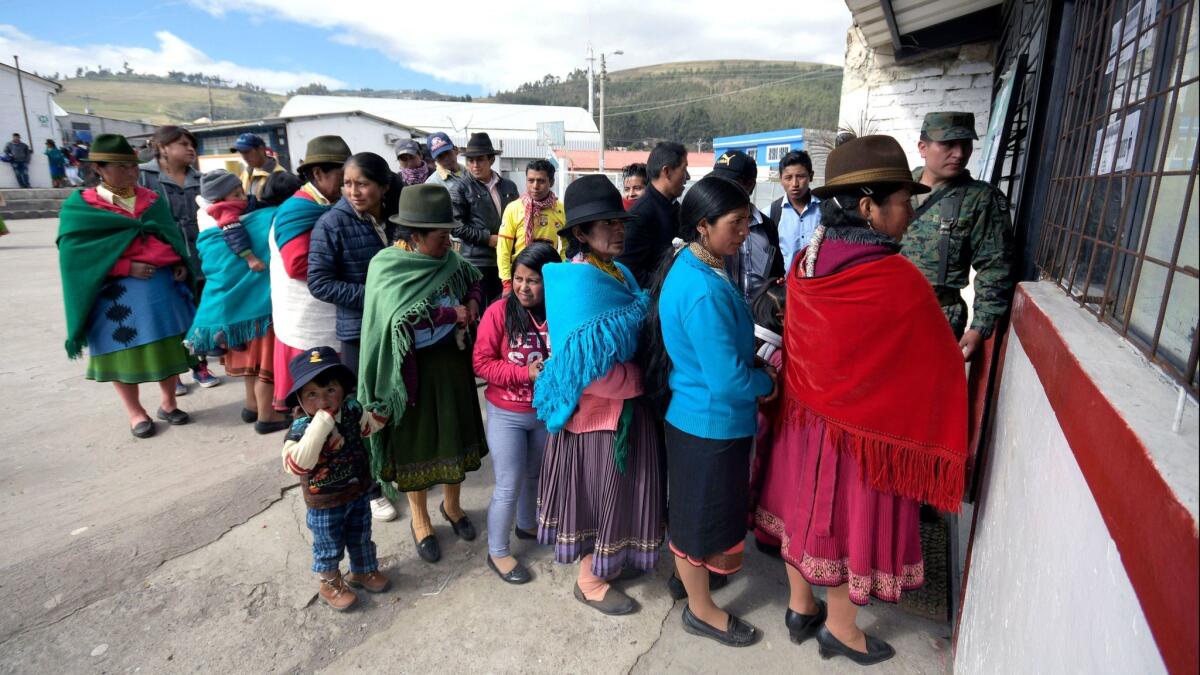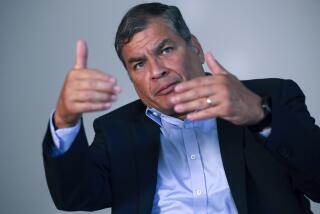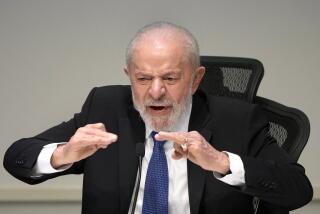Onetime popular president eyed a return to power. Ecuador voters had other ideas

- Share via
Reporting from QUITO, Ecuador — In a demonstration of the sometimes fleeting nature of populist power and political alliances, Ecuadoreans overwhelmingly voted Sunday to limit presidents to two terms, ending the chances of a return to office by the onetime popular Rafael Correa.
The passage of the initiative put forward by President Lenin Moreno essentially ends the aspirations of his predecessor and former patron, Correa, who prodded the congress in December 2015 to legalize unlimited presidential runs, leaving open the possibility of a return to power.
But much has changed in Ecuador since Moreno succeeded Correa in May. Correa once commanded a large and devoted following but has fallen from grace, as have many populist leaders in Latin America. (Just last month former Brazilian President Luiz Inacio Lula da Silva was sentenced to 12 years in prison for corruption.)
In Ecuador, an economic crisis has deepened and Moreno blamed the huge debts taken on during Correa’s 10 years in office as the primary cause.
Most of the loans came from China in exchange for future deliveries of Ecuadorean crude oil. Correa kept specific amounts of the loans shrouded in secrecy, but Moreno has lifted the veil, revealing over the summer that Ecuador owed the Chinese about 500 million barrels of crude, the equivalent of three years’ production.
In Sunday’s balloting a “yes” vote meant ending unlimited reelections for president. The “yes” side carried 64% of the vote.
“Voting yes is an opportunity to be part of the change because we can’t continue with the same model of government of Rafael Correa who left the country broke,” said Marjorie Chavez, a 35-year-old attorney, before voting in Quito, the capital.
Moreno’s oil minister, Carlos Perez, recently told the nation the shocking truth: that 97% of Ecuador’s 2018 oil production, the country’s leading export, is being shipped to Asia to reduce red ink.
China isn’t the only creditor: Petroecuador, the state-owned oil company, owed hundreds of millions of dollars to contractors including Schlumberger, the oil field services firm based in France and Texas.
The criticisms of Moreno, who served as vice president under Correa from 2007 to 2013, ended his friendship with the man who handpicked him as his successor. Their back-and-forth accusations have led to bitter acrimony aired out during the campaign leading up to Sunday’s vote.
Correa’s once-high poll numbers have also been beset by scandal. A former vice president, Jorge Glas, recently was sentenced to six years in prison after he was convicted of taking bribes from the disgraced Brazilian construction firm Odebrecht.
On Wednesday, as Correa gave a radio interview in the small town of Quininde, 75 miles northwest of Quito, Moreno supporters surrounded the station and threw garbage as the ex-president tried to leave. He was forced to remain inside for five hours, until police were able to escort him out.
Correa’s reversal of fortune resembles the falls taken by other populist Latin American leaders in recent elections. Their costly social programs, such as those supported by oil revenue in Venezuela, have been undercut by plunging prices of commodities that once made them feasible.
Before Correa came to power in 2007, Ecuador’s presidents were limited to a single four-year term. But midway through his first term, Correa engineered a constitutional change that allowed more runs for office. He chose to not run again in 2017.

On Sunday, heavy turnout was reported among the 13 million Ecuadoreans eligible to cast ballots. In addition to striking down indefinite reelection, voters also opted to terminate two other Correa-era laws.
One law dealt with the Council of Citizen Participation and Social Control, widely seen as a vehicle to place Correa partisans in key regulatory and judicial posts. The other was a capital gains tax that was touted as a measure to limit real estate speculation but that has had the effect of reducing home sales by 60%.
“I’m going to vote [to end unlimited reelection] because I think the last 10 years have been very bad for the country and that this new government can recover something,” said Cecilia Tello, a 44-year-old commercial engineer, before voting. “Ending unlimited reelection will also improve due process of law, generate more jobs and give families more security.”
Special correspondents Jaramillo Viteri and Kraul reported from Quito and Bogota, Colombia, respectively.
More to Read
Sign up for Essential California
The most important California stories and recommendations in your inbox every morning.
You may occasionally receive promotional content from the Los Angeles Times.










